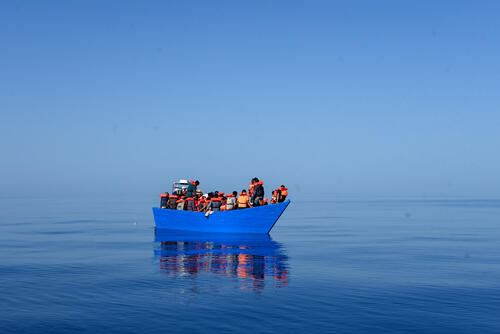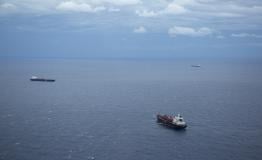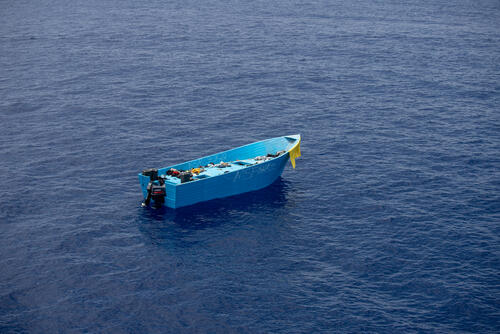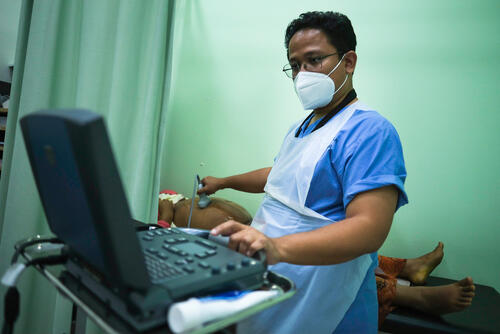During the Geo Barents latest rotation, between the 27-29 October, our teams performed seven rescue operations in international waters of the Maltese Search and Rescue region. 572 people have been rescued.
Among the survivors, there are three pregnant women, over 60 minors, many of them unaccompanied, and small children - the youngest being only 11 months old.
During all the search and rescue operations performed by the Geo Barents, our teams timely contacted and informed the Maltese maritime authorities, responsible for the Search and Rescue Region where the rescue operations occurred, as well as the Italian authorities. The Maltese rescue coordination centre did not send any instructions nor communications.
We have 572 people on board with 572 different stories. They all share the experience of risking their lives to cross the Mediterranean.Riccardo Gatti, MSF team leader on board the Geo Barents.
After a week since the first rescue, the responsible authorities in Malta not only haven't provided any coordination but are also failing to arrange for or assign a port where the 572 survivors currently on board the Geo Barents can disembark.
“We have 572 people on board with 572 different stories. They all share the experience of risking their lives to cross the Mediterranean,” says Riccardo Gatti, MSF team leader on board the search and rescue vessel.
“We assisted people travelling on overcrowded boats in critical conditions in recent days. All of the rescues took place in the Maltese Search and Rescue region.
“Despite timely informing the responsible authorities and repeatedly requesting coordination from Maltese authorities, all our requests were unanswered. The coastal states' inaction, specifically Malta’s, is blatant, as this country is voluntarily failing to arrange or provide a place of safety to disembark,” says Gatti.
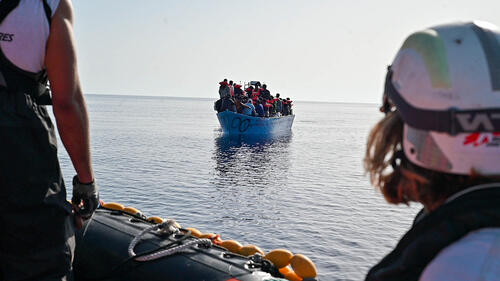
As recognised in the Guidelines on the Treatment of Persons Rescued at Seahttps://www.refworld.org/docid/432acb464.html, and as intended through the SOLAS and SAR Conventionshttps://www.imo.org/en/About/Conventions/Pages/International-Convention-on-Maritime-Search-and-Rescue-(SAR).aspx, the Government responsible for the SAR region in which the rescued persons were recovered is responsible for providing a place of safety or ensuring that such a place of safety is provided.
After four unmet requests for a place of safety to the Maltese authorities, another three official requests have been sent to the Italian authorities. Meanwhile, 572 survivors are still left at sea with no place to disembark.
“On board there is a boy who is determined to go to Germany. That is where his mother, terminally ill with cancer, is. He wants to see her one last time before she goes. There was no way to obtain a visa and so the only option for this boy was to set off along the world's deadliest route. These are among the stories we hear,” says Gatti.
“Everyone crossing the Mediterranean knows their lives are in danger, but there is no other option. On board is a boy who was intercepted by the Libyan coast guard and forcibly returned to Libya four times. Now he has made it out, we hope he will be free from the mechanism of abuse and arbitrary detention that has plagued him for too long,” he says.
Today, 2 November, the Memorandum of Understanding (MoU) on migration between the Italian and Libyan governments will automatically renew for three years. The European Union (EU)-sponsored agreement has seen millions of dollars of financial and technical support given to the Libya Coast Guard, who have intercepted more than 100,000 people at sea since it was first signed in 2017, forcibly returning them to Libyan detention centres and trapping them in a cycle of abuse.
MSF has been running search and rescue (SAR) activities in the central Mediterranean since 2015, working on eight different SAR vessels (alone or in partnership with other NGOs). Since launching SAR operations with the Geo Barents in May 2021, our teams have rescued more than 5,400 people and recovered the bodies of 11 who died at sea.



